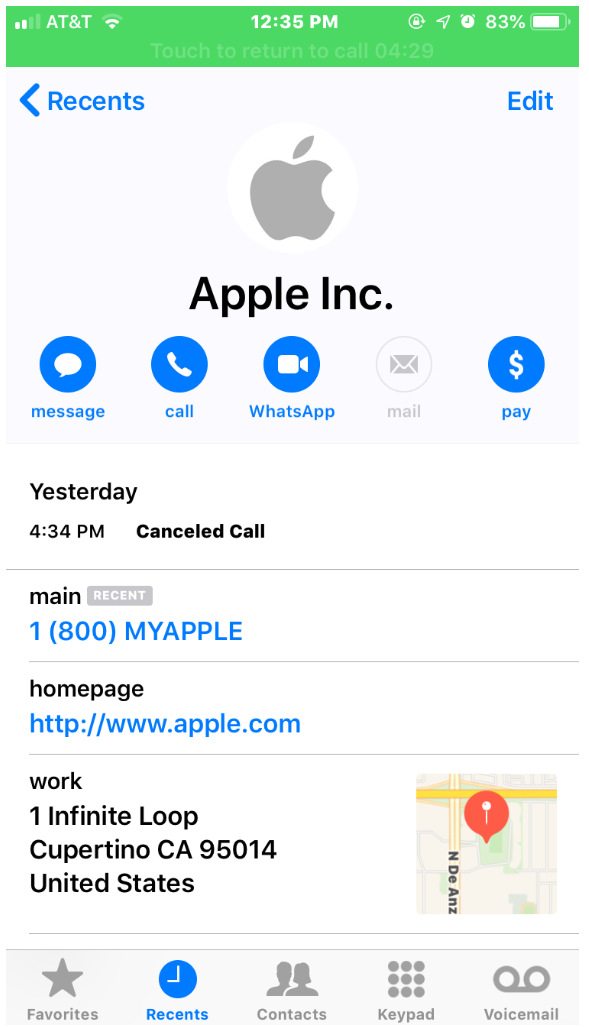
A New Well-Concealed Phishing Scam Targets Apple Users via Call
- Phone-based scam, masks as Apple Support to spoof people to give away their sensitive information.
- The scam was reported in detail by a security research company CEO who received the call.
- Apple has not officially warned users of the fact, as their devices seem to be incapable of distinguishing between scammers and their services.
As first reported by Jody Westby, the CEO of Global Cyber Risk LLC, there’s a new phishing scam going on lately, aimed at Apple iPhone users and carried out through a regular phone call. The concerning part is that the scam is very nicely concealed, being masked as a legitimate Apple Support Center automated call, claiming that the user ID of the receptor has been compromised. The details given in the call look almost perfect, missing only an “s” on the HTTP protocol identification of the URL.
Westby Device Screenshot
Westby proceeded to ask the real Apple Support to call them by submitting a request on the official website, and once contacted by them, the two calls (scammers and real support) merged together, so both looked like coming from the official Apple support. This should be enough to fool even the wariest users, raising great concerns on how many people may get spoofed by the particular scammers. The real support assured Westby that they had not called her before, and actually clarified that they do not follow automated calling practices at all.
Having ensured that the previous call came from scammers, Westby called them and played the role of the victim to the Indian-accent person that picked it up. The call was disconnected as the normal phishing process could apparently not be followed through this means, but the conclusion remains the same. Apple devices and AT&T (in that case) cannot distinguish between a scammer and a legitimate Apple Support call, laying the ground for scammers to perform their shady actions more concealed than ever before.
Have you ever found yourself in a situation similar to the one described above? Let us know of your experience in the comments section below, and don’t forget to hop to our socials as well, on Facebook and Twitter.









